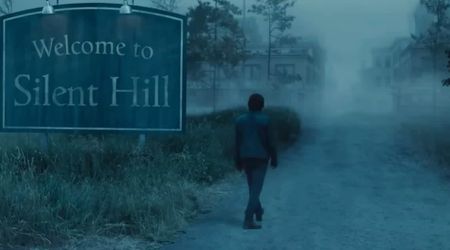'76 Days' Review: Gritty, raw look at early days of Covid-19 in Wuhan that focuses on humanity in dark times

When the city of Wuhan in China went into lockdown on January 23, 2020, the Chinese government had not yet confirmed that the human-to-human transition of the Covid-19 virus (or as we knew it then, the novel Coronavirus) was happening — that only came a week later. While the rest of the world traveled, ate out and went for parties as normal, the residents of Wuhan were battling an illness they did not know much about, and Chinese medical workers were doing everything they could with the knowledge they had.
With China's censorship of how the country is battling the virus, the latest documentary from MTV Documentary Films, from Chinese-American filmmaker, Hao Wu and two Chinese journalists, Weixi Chen and "Anonymous", is nothing short of a miracle. Shot across four different hospitals in the city during its 76-lockdown, '76 Days' is a raw take on the first people in the world to handle the early days of what is now a pandemic. As the world prepares for another wave of infections during the holiday season, this documentary is a stark reminder of when it all began.

As such, '76 Days' focuses on the human angle of battling the disease. With thousands of infections each day (in the United States alone), many of us have probably become desensitized. Likewise, Wuhan was subject to that desensitization as it was reduced to wet markets (which has since been disproved as the origin of the virus) and a fast-spreading infection. As racists attacks increased in continued, many did not realize that there were real people on the ground in Wuhan, risking their lives, losing their families, and just terrified of what was happening around them. As one of the earliest documentaries on the pandemic, '76 Days' serves to tell us the stories of those people.
The documentary chose to name the two nurses that has been the focus — the head nurse, Yang Li and Tian Dingyuan, who drove down from Shanghai to battle the disease on the frontlines. As the documentary starts, it closely resembles a horror film, with desperate residents trying to get into the hospital, while equally desperate hospital workers try to control the chaos. It also reminds us that these medical workers are exhausting themselves while their own families are going through the virus. A distraught nurse crying after her father just died is told to keep herself together because she has to return to work and deal with the massive inflow of patients.

There are a handful of stories in particular that form a cohesive narrative in a documentary that uses the covert footage to present an account with absolutely no frills. A couple is forced to wait for their newborn child when she is kept in the NICU as her mother tested positive for the virus before birth. One nurse rejoices as the baby, nicknamed "Little Penguin" by her, eats a lot and is healthy. The parents anxiously call each day to know when they can be reunited, and the mother laments that she has not yet been able to hold her baby, saying "Ten months of pregnancy and surgery, and I still haven't touched her." The family is reunited by the end of the documentary in an emotional scene.
It is hard to find comic relief in a documentary about dark days, but the "naughty grandpa" often provides that — that is, until you learn that he has dementia. Grandpa keeps wandering out of his room, without his mask, and the nurses are forced to deal with it every single time. When the nurses call his son, the latter lightly mocks Grandpa for his attitude despite claiming to be a communist party member, to which he responds that he will always be a party member, even in death. However, he is just desperate to go home to his family and see his grandchildren again. Even after he recovers, his son is reluctant to bring him home worried that he may still carry the infection. By the end, Grandpa says he no longer wants to go home saying his family picks on him, but when the day finally arrives, he says he is most excited about holding his littlest great-grandchild.

Most of all, '76 Days' humanizes the emergency workers who have been working tirelessly to protect people. At one point, as one nurse stretches in an empty hallway of the hospital, another checks if they are alright, but the nurse insists they are and that they want to return to work. When an old woman in what seems to be the final stage of battling the disease is unconscious, Tian laments that he did not hold her hand longer as she wanted to when she had been conscious. We also see Yang sorting through patients' personal effects, sanitizing them, and keeping them safe so she can return them to the families of the patients — even though it is not allowed. At the end of the film, Yang meets a woman outside the hospital to tell her that her mother died. She cries that they did everything they could to save her and that she was sorry that she could not in the end. The woman comforts her in return and thanks her and the other medical workers for all they do.

Now, most of these scenes are something we have gotten familiar with — especially with many television dramas showing how hospitals are dealing with the Covid-19 pandemic. With no music, no crafted dialogues, no flashy editing and no embellishments, '76 Days' is a testament to humanity in the darkest of times. It is an ode to the people of Wuhan who were dealing with the disease firsthand when no one else knew about it. It is required viewing and will no doubt be a seminal piece of art that archives the beginning of a year that will forever be remembered in history.
'76 Days' is available for viewing on-demand on Friday, December 4, at afisilver.afi.com and virtualavalon.org. Contains disturbing material. The film is in Mandarin with subtitles and is 93 minutes.










